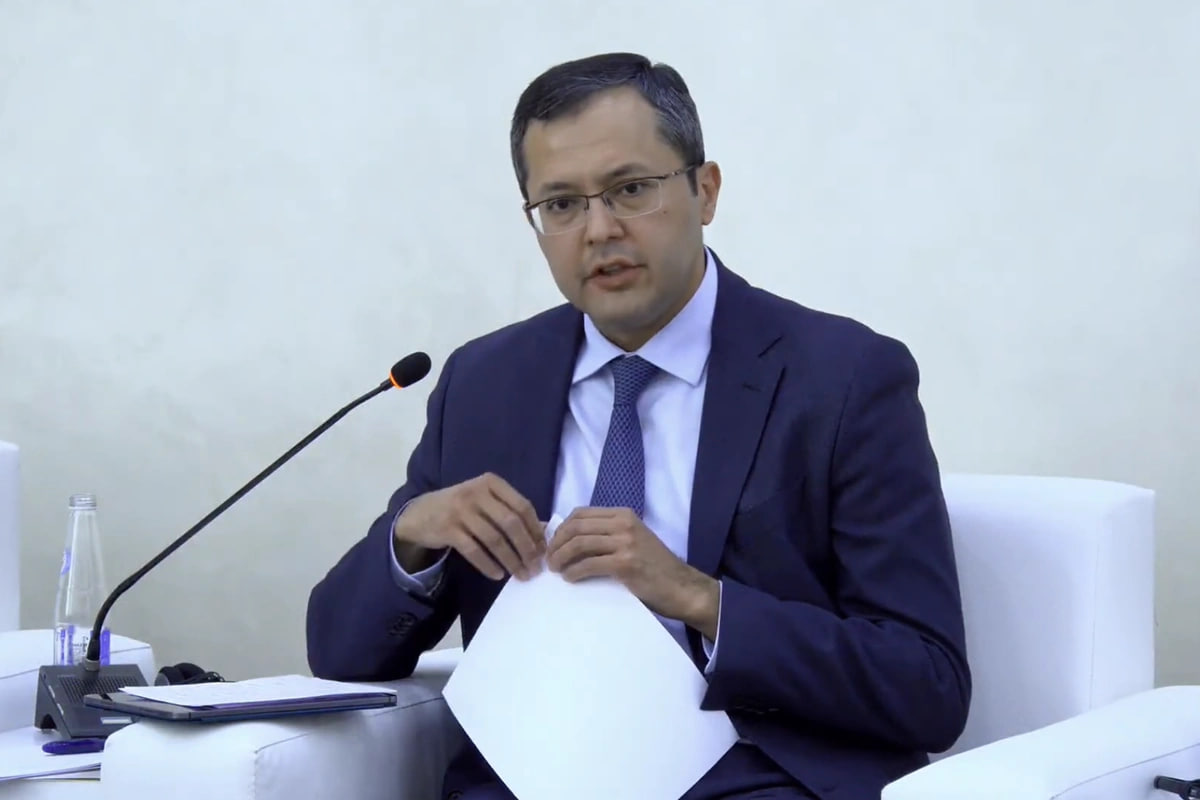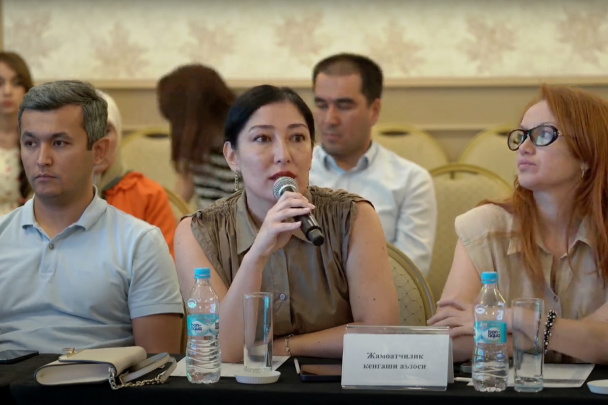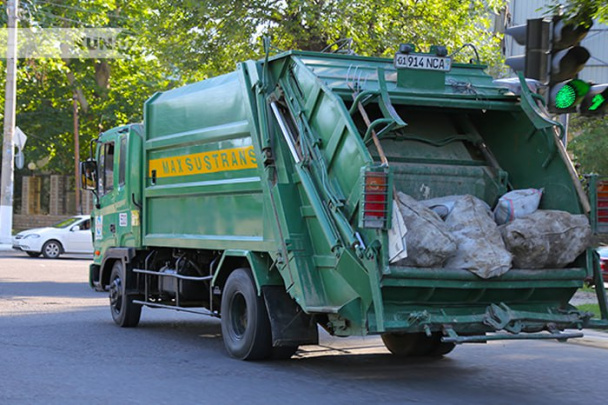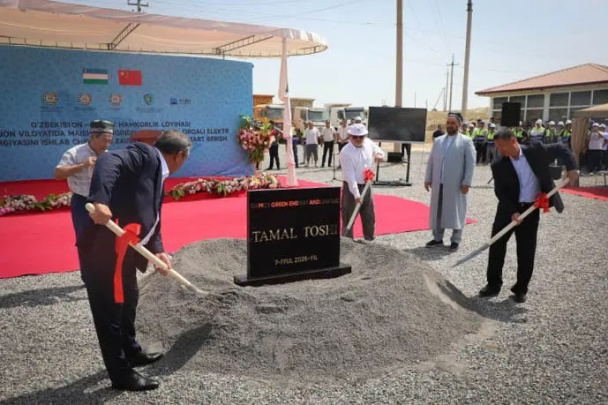Central Bank Chairman: Energy tariff reforms finalized; inflation may ease to 8% by year-end
The reform of energy tariffs in Uzbekistan was finalized on May 1, and the Central Bank no longer expects further increases in regulated prices, Timur Ishmetov announced. He added that the exchange rate remains stable and no longer poses risks, unlike in previous years. “We do not foresee such risks either this year or next,” he said.

Photo: Frame from the video
Uzbekistan’s inflation rate remains elevated, but it could slow to 8% by the end of 2025. This was stated by Central Bank Chairman Timur Ishmetov on May 2 during an IMF conference.
“Unfortunately, inflation is still high – currently around 10% year-on-year. This is mainly due to large-scale reforms aimed at price liberalization. Only on May 1 did we complete the second and final stage of energy tariff reform. We no longer expect price increases in administratively regulated sectors and can now focus on bringing inflation down,” he noted.
Citing an IMF report, Ishmetov pointed out that Uzbekistan is facing “extraordinary global political uncertainty.”
“This is true and something that concerns us. Nevertheless, even amid these challenges, there are positive developments. For example, rising gold prices are beneficial for us, and we should take advantage of that. Additionally, our trade balance has improved – even when excluding gold, the trade balance shows positive dynamics,” he said.
According to Ishmetov, the foreign exchange situation remains stable and does not pose the same risks as in the past.
“We do not anticipate any risks that might put pressure on the exchange rate. This is a positive shift, as currency depreciation was a constant risk for us in previous years. We see no such risks for this year or the next, which should help reduce inflation,” the official added.
Ishmetov expressed hope that 2025 would mark the end of a series of difficult years for the Central Bank in terms of inflation. By the end of the year, the bank aims to bring inflation down to 8%, and to reach the target level of 6% starting in 2026.
Despite ongoing uncertainty and external challenges, the Central Bank believes it is essential to focus on improving access to finance – for both households and businesses.
“This includes implementing microprudential regulation, enhancing financial accessibility, and relying on domestic demand, especially given the rising cost of external borrowing. We must pay more attention to internal growth drivers and our own potential,” he emphasized.
On May 1, 2024, five years after the previous increase, Uzbekistan introduced social consumption norms. The base electricity tariff for households within the social limit rose from 295 to 450 UZS per kWh (+52.5%), while the gas tariff increased from 380 to 650 UZS per cubic meter (+71%). Rates rise significantly if consumption exceeds the social threshold.
A further tariff increase took effect on May 1, 2025. The base price for electricity rose by another 33.3% to 600 UZS per kWh, and gas by 53.8% to 1,000 UZS per cubic meter.
Starting in 2026, electricity and gas tariffs in Uzbekistan will be adjusted annually on May 1 in line with inflation, but by no more than 10%. Initially, the government had planned to freeze rates for at least three years beginning in 2026.
Previously, the government had intended to continue subsidizing gas and electricity prices despite last year’s and the recent tariff hikes. In 2025, the state budget is expected to allocate 12.3 trillion UZS in subsidies for gas, electricity, and heating. According to Deputy Prime Minister Jamshid Kuchkarov, this practice is set to end only by 2028.
Recommended
List of streets and intersections being repaired in Tashkent published
SOCIETY | 19:12 / 16.05.2024
Uzbekistan's flag flies high on Oceania's tallest volcano
SOCIETY | 17:54 / 15.05.2024
New tariffs to be introduced in Tashkent public transport
SOCIETY | 14:55 / 05.05.2023
Onix and Tracker cars withdrawn from sale
BUSINESS | 10:20 / 05.05.2023
Latest news
-
Russian lawmakers propose higher charges for migrant work permits
SOCIETY | 18:50 / 15.07.2025
-
Second season of “Open Budget” program kicks off
SOCIETY | 18:49 / 15.07.2025
-
Etihad Airways to launch flights to Uzbekistan
SOCIETY | 18:47 / 15.07.2025
-
Uzbekistan’s mental health index falls below global average
POLITICS | 16:03 / 15.07.2025
Related News

19:28 / 14.07.2025
Catering businesses in Uzbekistan demand compensation for power outages

09:10 / 12.07.2025
Uzbekistan to link electricity payments to waste collection debt starting August

15:26 / 09.07.2025
Andijan region launches $140M waste-to-energy facility construction

13:04 / 09.07.2025



